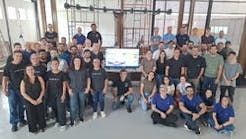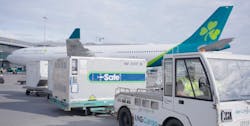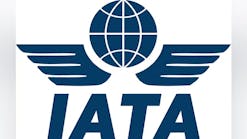TORONTO (AP) -- Mitra Gopaul has trouble sleeping; Eddie Ho has repeated flashbacks and some children are still clinging to their parents more than a week after surviving the Air France crash during a heavy downpour at Canada's busiest airport last week.
JoAnn Cordary Bundock, a business executive who must get back on a jet next Tuesday and fly to South Korea for work, worries she'll collapse in fear.
Air France, they say, has not done enough to compensate or reassure them, so they are considering joining a class-action lawsuit filed last week in Ontario Superior Court, which seeks C$325 million ($US269 million) in damages for trauma and any future medical expenses and loss of property and earnings.
''The first week I was plagued by nightmares, difficulty in sleeping, loss of appetite and constant flashbacks,'' said Ho, a 19-year-old business student from South Africa who says he's uncomfortable with the lawsuit, but feels compelled to join.
''People say, 'You're going to get tons of money,' but I don't see it that way. It's such a pain and I want my old life back. I wish it had never happened, I really do. It's uncontrollable and it's a psychological disaster.''
About 50 of the passengers and their family members attended a meeting called by Toronto lawyers at a downtown Toronto hotel on Wednesday night.
The lawyers have enlisted the help of Mary Schiavo, a former inspector general for the U.S. Department of Transportation and strong critic of air safety. The aviation attorney has represented many air crash survivors, including the families currently suing the U.S. airliners involved in the 9/11 terrorist attacks.
Schiavo, author of the book ''Flying Blind, Flying Safe,'' told the passengers that they were not to blame for the crash and cautioned them to move quickly, as their rights under the Warsaw Convention, which regulates liability for international airlines, has strict deadlines.
Post-traumatic stress syndrome and other psychological trauma often don't hit patients for months, sometimes even years, she said. Airlines, she said, have been known to then ask why those passengers hadn't sought help immediately after the crash.
''Survivors are sometimes a little too brave,'' Schiavo told the silent crowd, some of them foreigners who had a hard time understanding English, several holding their infants close. ''Many of my clients I've represented in the past have put on a stiff upper lip.''
All 309 passenger and crew survived when Air France flight 358 from Paris landed long on the east-west runway at Toronto's Lester B. Pearson International Airport Aug. 2, skid some 200 meters (yards) off the end of the runway and slammed into a ravine. Everyone escaped about a minute before the jet was completely engulfed in flames.
Investigators say the flight voice and data recorders have indicated that the Airbus A340 was working properly, so they're now looking at weather, runway safety and what forced the co-pilot to land the plane some 4,000 feet down on the 9,000-foot runway.
While many of the passengers have praised the Air France crew for quick action in getting them off the jet, they also say the passengers should be credited for keeping their cool and helping one another. Some are angered by what they see as a lack of communication with Air France and the discrepancies so far in compensation.
Some passengers have received $1,000, others $2,000 and still others $3,500.
''Why are they dolling out a thousand for some and different amounts for other people?'' asked Bundock, who got $2,000 in cash. ''It just doesn't seem fair, right from the very beginning.''
Bundock, a vice president for Marriott International Inc., said she is reluctant to get involved in litigation, but may not have a choice.
''We need compensation that is fair and just, and if it comes to the point of having to sue them because they're not doing what they're supposed to do, then I will do that.''
She is dreading her flight to Seoul next Tuesday for a business meeting. Not because she fears a crash, but doesn't know how she herself will react to flying.
''I want to do my job; I like my job and I can't do my job without traveling,'' said Bundock, an American who lives in Fort Lauderdale and Toronto and racks up some 25,000 frequent flyer miles a year. ''I don't know how this is going to affect me on this trip, or in six trips down the road. I am quite concerned because this is my livelihood.''
An Air France spokesman in Paris said the money that passengers have received so far is only an advance on their compensation. Some lost credit cards and cash and needed larger sums, the spokesman said on customary condition of anonymity.
The spokesman said more compensation would be coming and declined to comment on the allegations of negligence on the part of the French airliner.
Gopaul was returning from Israel, where he was volunteering for the Baha'i World Center as a database administrator. He wonders whether God put him on that flight.
''I'm still wondering why I had to go through this, if there is a godly reason,'' said Gopaul, who in an horrific bit of coincidence said his 20-year-old daughter was riding a bus along Highway 401 and witnessed the crash from the roadside. ''I have to figure out in my personal life why I had to go through that.''
Copyright 2005 Associated Press





